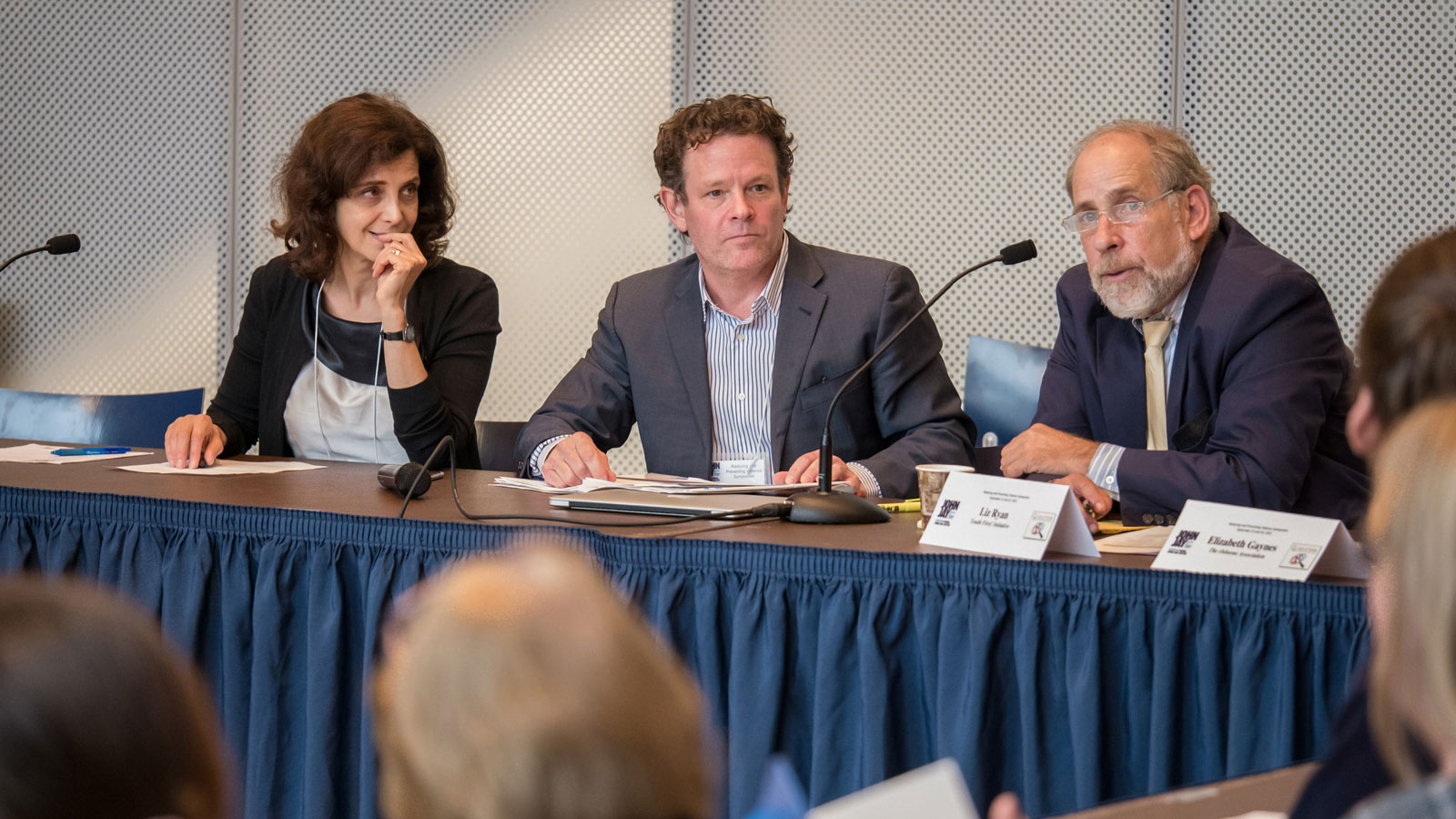If you’re reading this toolkit, it means you are—at the very least—intrigued by solutions journalism and how it might enhance your reporting skills. Great. We believe journalists gain a lot when they look at responses to problems.
A wide variety of compelling stories simply don’t get covered. Why? The field of journalism has traditionally been resistant to seeing responses as legitimate fodder for investigation. Some reporters and editors fear it will be perceived as advocacy, fluff, or PR. Here at the Solutions Journalism Network (SJN), our mission is to change that perception. We define solutions journalism as rigorous, compelling coverage of responses to social problems—reporting done with the highest of journalistic standards.

We’re already working with a network of over 170 newsrooms and thousands of individual journalists to demonstrate that solid solutions journalism need not be feared. To the contrary, it’s an important, underused tool in a reporter’s pocket.
SJN was co-founded by David Bornstein and Tina Rosenberg, veteran reporters who write the “Fixes” column at The New York Times, and Courtney E. Martin, a journalist and author who got her start just as online media was exploding. The three of them had unique journeys—through the farmlands of India, the hospitals of Brazil, and the Ninth Ward of New Orleans—that led them all to the same conclusion: there wasn’t enough healthy competition among journalists for great stories about responses to social problems in the world.

The old thinking: we might compromise our professionalism by covering solutions. The new thinking: we compromise our professionalism by not covering solutions. As journalists, our job is to hold up an accurate mirror to society. If we fail to cover the many ways people and institutions are trying to solve problems—successful or not—we fail to do our jobs. If we only cover the systemic problems in schools, for instance, and ignore the models that are working to improve education, we are not telling the whole story.
Many of us became journalists because we want to have an impact, to make the world better. But uncovering wrongdoing isn’t the only way to have an impact. Revealing problems is crucial, of course—but that impact is magnified if alongside the problems, we report on how people are solving them. Education reporters, for example, produce hard-hitting stories about how public schools are failing poor children. They'd have more impact if they also reported on how some schools are educating all their students, and how they are achieving this. These kinds of stories energize readers, listeners and viewers. They change the public debate. And they change policies.
People don't change merely because someone points out their problems. We need to know that change is possible and see models of how to do it. Societies work the same way.
This Solutions Journalism Learning Lab is designed for anyone who wants to practice solutions journalism. We hope you will find value in these pages, whether you’re a veteran print journalist looking to reinvigorate your approach, a mid-career videographer looking to reconnect to your original reasons for becoming a journalist, a journalism student looking to define your career, or anything in between.
The Learning Lab walks users through the practice of solutions journalism from the first step, which is to identify a response worth investigating, to the last: engaging readers in your piece once it is published. But you need not navigate this resource from start to finish like a traditional book. You can pick the sections that are most useful to you.
We distill the structures of a few solutions journalism stories, to aid you in times of writer’s block. And throughout the Toolkit, you’ll find videos and interactive exercises that bring the solutions approach to life; links to case studies and model stories from our Solutions Story Tracker; and connections to other resources on our site and elsewhere. Plus, we’ve created special guides for beat reporters focused on health, education, and violence issues.
We see this as a working document and hope that you will talk back. Please give us feedback, whether by emailing, tweeting, or skywriting. We welcome all advice that helps us improve on this resource and makes it more useful to the growing network of people practicing solutions journalism.
We look forward to hearing from you soon!
